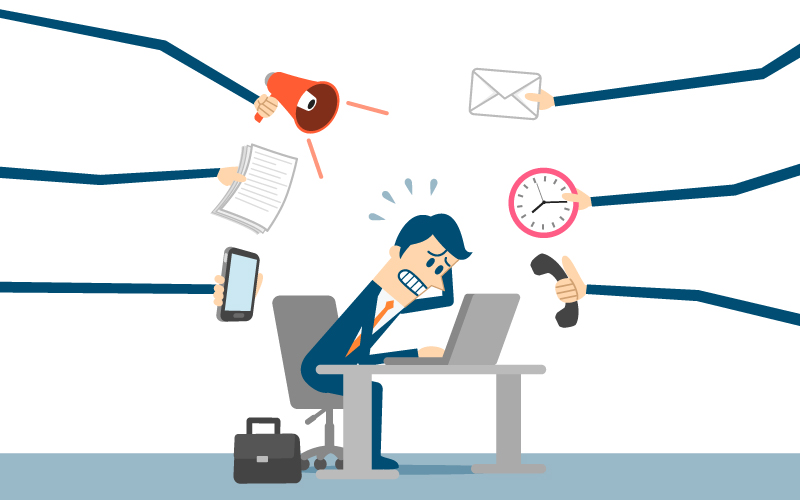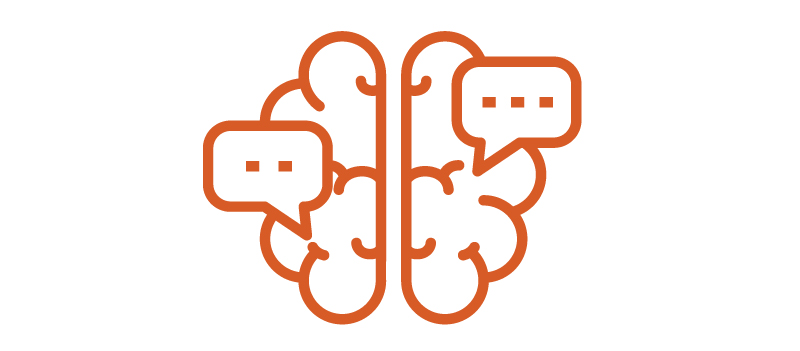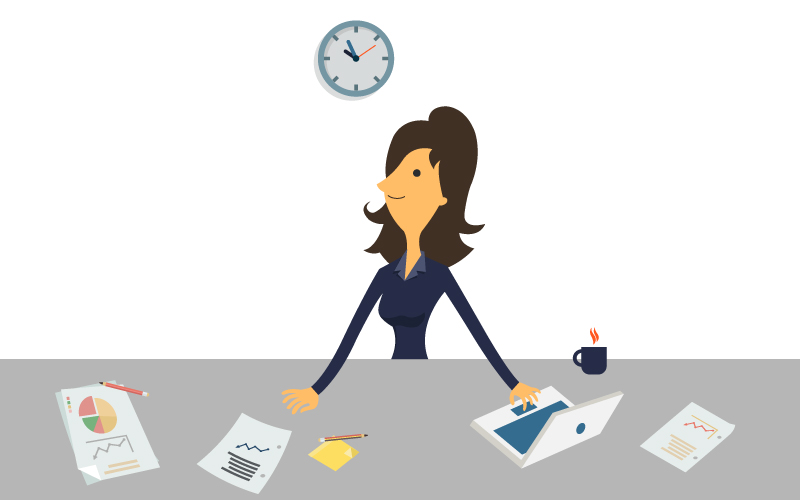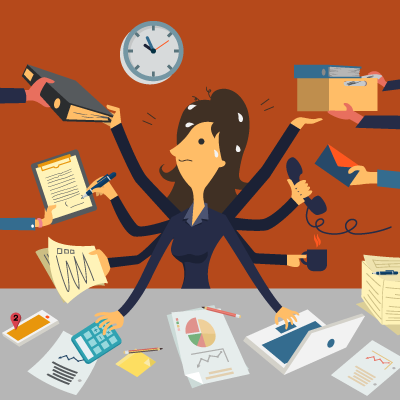We all attempt to multitask…why, because only focusing on one task seems like a waste of time. Contrary to popular belief, multitasking doesn’t actually save time, in fact, multitasking diminishes efficiency. In a fast-paced environment, like an advertising agency, creative teams develop material for multiple clients, thus, the industry values multitasking as an essential skill in delivering an amazing final deliverable to the client. Multitasking is overrated…and let’s face it, you are not actually good at it. Here are the five reasons to stop multitasking now:
1. Multitasking Diminishes Your Creativity
Multitasking requires a substantial amount of “working memory,” or temporary brain storage. When you consume this mental bandwidth your ability to think creatively suffers. Constant internal dialogue lowers your ability to generate that unprompted “AHA moment.” Nationally acclaimed neurologist Romie Mushtaq, states, “Multitasking…depresses the brain’s memory and analytical functions, and it reduces blood flow to the part of the right temporal lobe, which contributes to our creative thinking.” Creativity remains paramount in the advertising industry. The most creative and innovative concepts do not come from multitaskers.
2. Multitasking Stresses You Out
Multitasking contributes to increased stress. Thoughts of impending deadlines generate that inner dialogue about multitasking as a means of improved productivity. In reality, multitasking creates stress, which slows you down and decreases your productivity. Technological advancements streamlined communication, however, now people remain in constant “high alert” mode, this heightened state leads to a higher heart rate. Allow yourself to turn off distractions when working on a project that requires concentration.

3. Multitasking Makes You Less Productive
Many people operate under the false impression that they accomplish more when they complete tasks concurrently. Multitaskers often become less productive than someone completing one task at a time. Recent research indicates that switching between tasks can cause a 40% loss in productivity. Multitasking delays the efficiency and quality of your work and makes it more difficult to organize thoughts and filter irrelevant information.
4. Multitasking Slows Down Your Brain
The brain functions at its highest capacity when focusing on one thing at a time. When you overload your brain, you slow down. MIT neuroscientist Earl Miller explains that our brains are “not wired to multitask well and when people think they’re multitasking; they’re actually just switching from one task to another very rapidly. And every time you do so, there’s a cognitive cost.” Read Earl Miller’s study here.

5. Multitasking Diminishes Your Focus
Scientific research definitively proves that the brain cannot effectively or efficiently switch between tasks. It takes four times longer to identify new variables, therefore, multitasking actually wastes time. Additionally, scattered thoughts increase the risk of making more mistakes.
When using a literal definition of multitasking, it’s pretty much impossible to multitask. The brain can only really focus on one thing at a time, as stated above. You can’t read a book and write code at the same time, that is just switching back and forth between tasks, again, as stated above. I think employers just use the wrong word, I think what they actually mean is that they want an employee that can work on different things, not literally simultaneously, but simultaneously. Maybe effective time management better describes what employers mean when they say “must have the ability to multitask.” If you focus on one task at a time. You’ll be more creative, more productive and more focused, not to mention less stressed…and your brain will be healthier too.

So instead of reading this blog while watching the news, cooking dinner, and answering an email…try something different. Go for a run. Take a yoga class. Try meditating. Give your brain a break. Everything else can wait.



